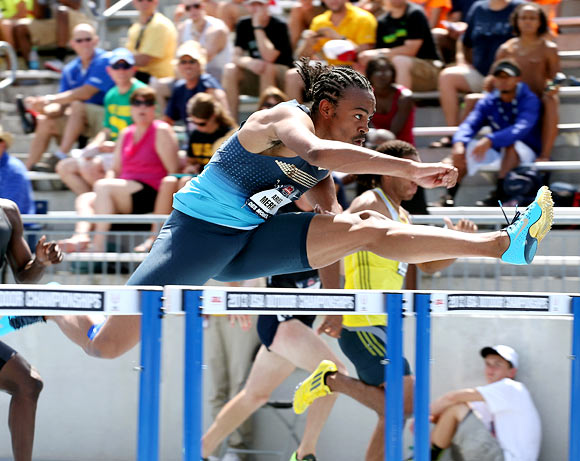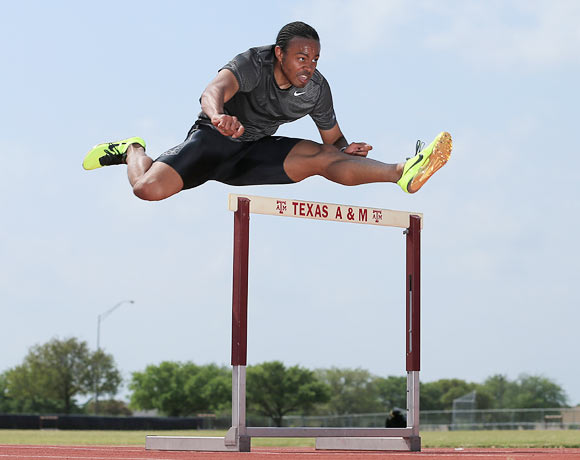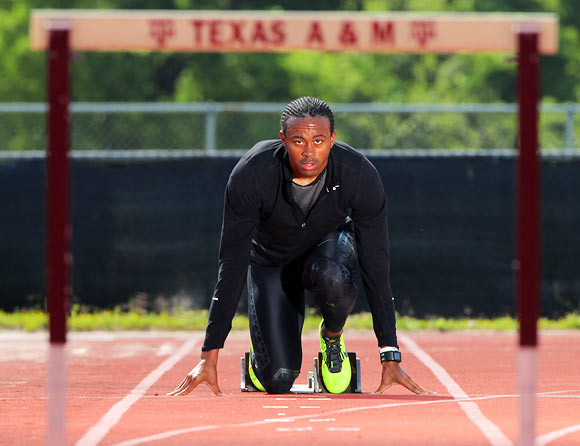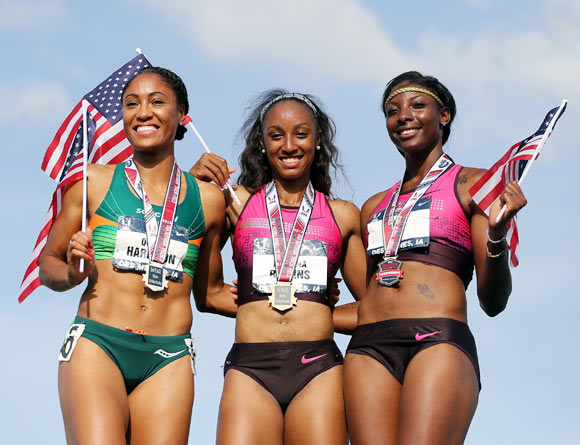Photographs: Andy Lyons/Getty Images
Olympic champion and world record holder Aries Merritt says he finds it a "little strange" that no one has dipped below 13 seconds in the 110 metres hurdles this season and plans to remedy the situation in the world championships.
Merritt missed much of the early part of the outdoor campaign with a hamstring injury but in his absence the best any of his rivals could muster was the 13.03 by his fellow American David Oliver in Lausanne a month ago.
Now declaring himself fully fit for an assault on the world title in Moscow, Merritt has perhaps forgotten that his remarkable 2012 somewhat distorted the statbook.
Fit-again Merritt eyes sub-13 world title in 110 metres hurdles
Image: Aries MerrittPhotographs: Doug Pensinger/Getty Images
Last year the 13-second barrier was broken 12 times but eight of those marks were by Merritt. It was an astonishingly consistent run of form in the most technical of events and climaxed with Olympic gold (12.92) and his stunning world record of 12.80 in September.
His best 2013 time of 13.09 in Paris a month ago leaves Merritt fifth in the year's rankings but he will go into next week's event as the firm favourite.
"It's really strange, I was thinking some of the guys who weren't injured would get under 13 so it's weird that they're not," Merritt said in Moscow.
"Everyone knows I hurt the hamstring ... but I'm ready for the race of my life. My fitness is great now and training has been great and I finally feel ready to give the fans what they want - that magic barrier of under 13 seconds.
"The practice track is extremely fast and I've been told the stadium track is very similar to London, apart from the fact that it's blue, so we should see some fast times."
Fit-again Merritt eyes sub-13 world title in 110 metres hurdles
Image: Aries MerrittPhotographs: Doug Pensinger/Getty Images
Merritt is one of four Americans in the event along with Oliver, world champion Jason Richardson and surprise US trials winner Ryan Wilson, offering a real chance of a first global clean sweep in the event since the 1960 Olympics.
The United States won 15 of the first 17 Olympic high hurdles races and an incredible 40 of the first 50 medals awarded.
They also took seven of the first nine world championship golds beginning in 1983 with the first of Greg Foster's hat-trick.
In recent years, however, as other nations have embraced the discipline, they have not had things quite so easy and have taken only one world and one Olympic title from the last four editions of each competition.
Fit-again Merritt eyes sub-13 world title in 110 metres hurdles
Image: (Left to right): Queen Harrison, Brianna Rollins and Nia AliPhotographs: Christian Petersen/Getty Images
The tradition is not so deep in the women's 100m hurdles - which was introduced into the Olympics only in 1972 - but the Americans are making a serious assault there this year too.
Dawn Harper, Queen Harrison, Nia Ali and Brianna Rollins, whose 12.26 in the US trials made her the joint third-fastest woman of al time over the distance, are all contenders but face the stiffest of opposition in the shape of Australian Olympic and world champion Sally Pearson.
That dual assault on Moscow highlights the remarkable strength of American hurdling and the team's coaches say that the quality needed to succeed attracts high-achievers.
"When you choose to became a hurdler in the US you understand right away what it's going to take to make the team," said men's head coach Mike Holloway.
"You really have to step up your game and it starts at high school when you have to make a real commitment.
"It's a coaching issue too. If you are going to coach hurdles you have to find the right athlete and be very diligent in your work."
Women's head coach Beth Alford-Sullivan was similarly enthused.
"The more our athletes achieve the more inspirational they are," she said.
"We've just had a great line of history in the event and I think that perpetuates itself."






Comment
article